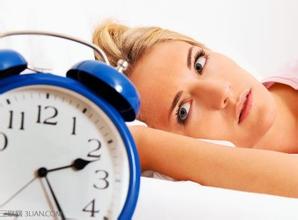
“失眠”容易导致“脸盲”
Poor Sleepers Worse at Recognizing Unfamiliar Faces
“失眠”容易导致“脸盲”
Subjects suffering insomnia got more wrong answers in a face-matching task-but they were paradoxically more confident of their responses. Christopher Intagliata reports.
在一项面部匹配的试验中,饱受失眠困扰的观察对象做出了更多错误的选择,奇怪的是这些失眠患者却对自己的错误答案颇有自信。克里斯托弗·因塔利亚塔报道。
撰文/播音:克里斯托弗·因塔利亚塔(Christopher Intagliata)
翻译:郭鑫鹏
审校:索红日
Standing in line at passport control isn’t the most relaxing experience. The officer looks at your passport…at you…back at your passport…back at you. Kind of nerve wracking. But put yourself in their shoes. They’re trying to figure out if your face is actually the same one as that little thumbnail image on the page. Not the easiest task.
站在入境护照检查窗口并不是一个非常轻松的体验。边检官员看看你的护照,又看看你,再看看护照,又看向你。相当伤脑筋。但是把你放在他们的位置你就会知道,他们正在努力地确认你的脸是否和证件上拇指大小的照片相一致。这并不是简单的工作。
“People are often surprised at how poor they are. ”David White, a cognitive psychologist at the University of New South Wales in Australia. He’s even tested Australian passport agents at the task. “Their performance was no better than a group of untrained university students.”
“人们常常对他们差劲的表现而感到惊讶。”澳大利亚新南威尔士大学认知心理学家大卫·怀特说道。他曾在实验中测试了澳大利亚护照边检人员,“他们的表现并不比一群未受过训练的大学生要好。”
In his latest study, White and his colleagues investigated how poor sleep—less than six and a half hours a night—might affect facial recognition. Turn out, bad sleep did lead to more wrong answers on a face-matching task. And study subjects suffering from insomnia, meaning poor sleep plus other symptoms like anxiety, scored badly, too, compared to well-rested subjects.
在他最近的研究中,怀特和他的同事们调查了夜晚低于6个小时半的睡眠会对脸部认知产生怎样的影响。结果表明,坏的睡眠质量使得人们在面部匹配实验中的表现更差。相比于睡眠充足的实验对象,那些受失眠困扰甚至因此导致焦虑症状的实验对象也有着更差的表现。
But here’s the twist: ”When they made errors, people in this insomnia group, they actually had higher levels of confidence.” They were more sure of their wrong answers. The results are in Royal Society Open Science. [Louise Beattie et al, Perceptual impairment in face identification with poor sleep]
而更令人感到意外的是,“当他们做出错误的选择时,处于失眠症一组的人们对自己的答案有更大的自信。”他们更加肯定自己得出的错误的答案。研究结果发表于《皇家学会开放科学》期刊上[Louise Beattie et al, Perceptual impairment in face identification with poor sleep]。
To avoid these kinds of errors, White suggests security organizations pay more attention to which employees may be sleeping poorly. “That’s more a sort of everyday occurrence, certainly for new parents or people that may have their sleep disrupted by shift work, which is very common in these security and forensic settings. “And that they screen staffers for signs of insomnia, and consider assigning those officers to different jobs, that don’t involve scrutinizing faces all day. Precautions that may help the rest of us sleep a little easier, too.
为了避免产生这样的错误,怀特建议各单位的安全部门对睡眠质量差的职工给予更多的关注。“对于那些刚有孩子的父母或者一些可能因为轮班工作而影响睡眠的人们是家常便饭,并且在一些安全和法医环境下很常见。”他们应该筛查出那些有失眠症迹象的职员,并派给他们一些不用整天仔细观察面部的工作。这些预防措施也可以帮助其他人更好地睡眠。
未经书面许可任何人不得复制或镜像
京ICP备11000850号-1
 京公网安备11010502039775号
京公网安备11010502039775号 信息网络传播视听节目许可证0111611号
国家科技基础条件平台

















